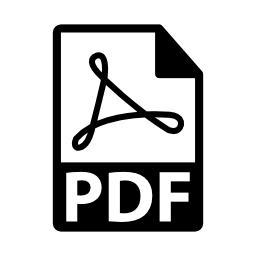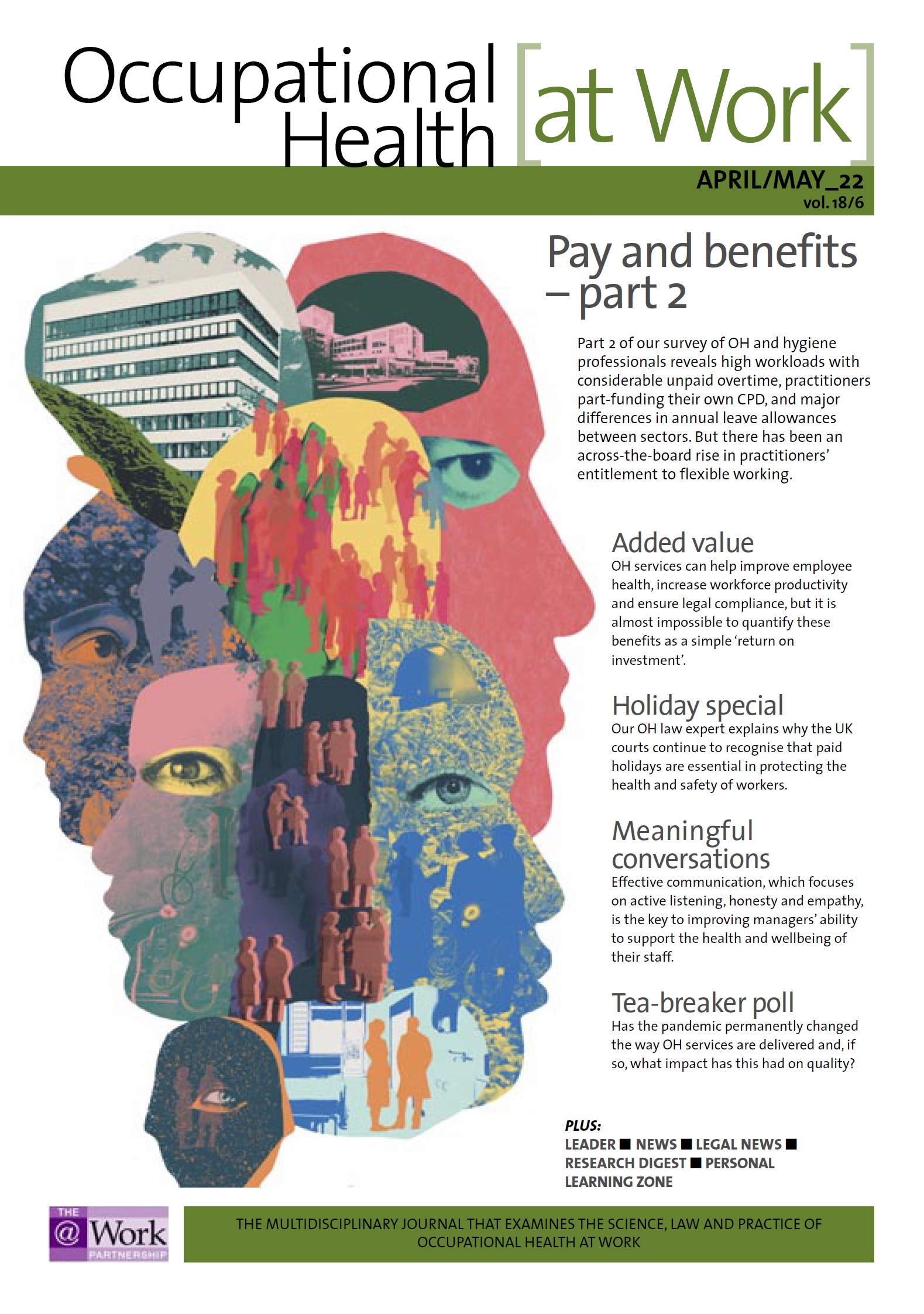April/May 2022 (vol. 18/6)
ContentsFeaturesNewsLegal
NewsResearch DigestResearch PlusCPD
 PERSONAL LEARNING ZONE
PERSONAL LEARNING ZONE
Summary:
FEATURED ARTICLE
This issue of Occupational Health [at Work] features a Personal Learning Zone (PLZ) article recommended for continuing professional development (CPD). The assignment questions, ‘Personal learning statement’ and ‘Certificate of engagement’ are available to subscribers at here. These will also be stored in your password-protected PLZ. The PLZ will help you document your own CPD. Occupational health physicians and nurses, occupational hygienists and other professionals can use the resource in support of their specialism’s revalidation or CPD requirements
Pages 17–33. Meaningful conversations Although line managers play an important role in referring cases to OH, they can do more to enhance the wellbeing of staff by having ‘meaningful conversations’ with their employees. Such conversations can ensure that strictly management issues are not ‘medicalised’ and that the role of OH is optimised. Line managers will need training to ensure they have the necessary skills.
ADDITIONAL CPD
The following articles, news and research items are suggested reading for CPD and professional revalidation. Subscribers can complete their online Personal Learning Zone CPD record at here
Page 4-5. NICE has released a new guideline on mental wellbeing at work. It emphasises the need to address mental health strategically, rather than organisations simply reacting as problems emerge.
Page 7. The UK government has said that, from 1 April 2022, employers will no longer be required to explicitly consider COVID-19 in their health and safety risk assessments.
Pages 8–9. Occupational health professionals should prioritise the return-to-work needs of cancer patients, and ensure they and their HR colleagues converse with individual employees to discuss their specific needs.
Pages 10–12. The EAT has upheld an employment tribunal decision in Judd v Cabinet Office that, on the facts of the case, it was proportionate for a employer to refuse a disabled employee’s overseas secondment on the grounds of protecting her health and safety.
Pages 32–36. In demonstrating the value of occupational health services, it is important to look at the cost-effectiveness of interventions, rather than trying to demonstrate a cost–benefit.
Pages 40–42. Our compendium of recent research includes an evaluation of the economic burden of musculoskeletal (MSK) pain at a major UK employer, the practicalities and effectiveness of an arm-support exoskeleton to help prevent MSK disorders and an analysis of how employers can optimise employee wellbeing in ‘hybrid’ working patterns.
Author: The At Work Partnership Ltd
Occupational Health at Work April/May 2022 (vol. 18/6) pp43



